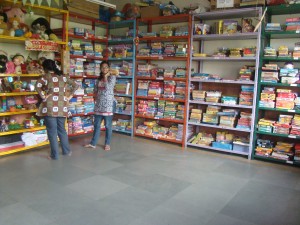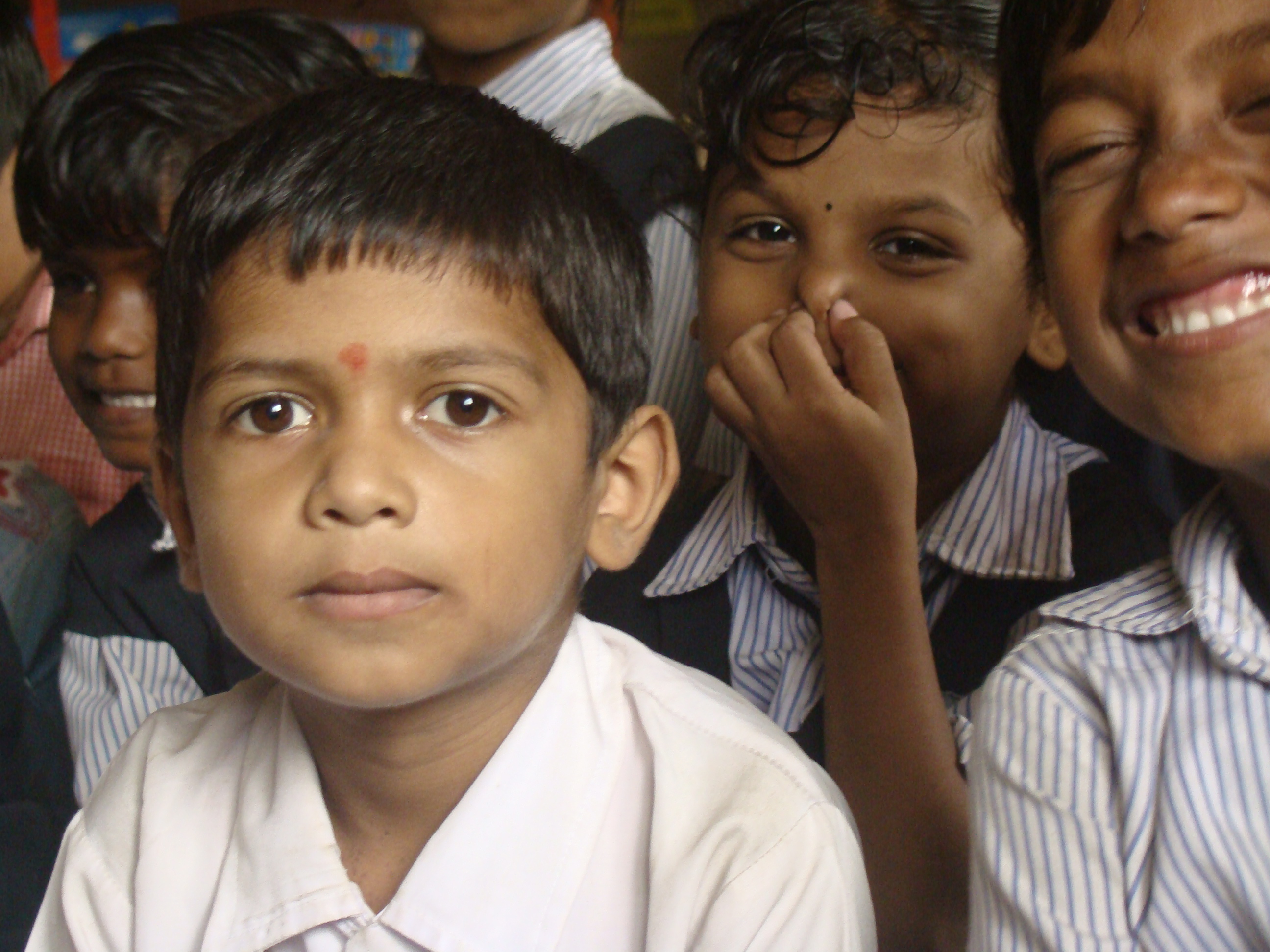The Children Toy Foundation houses over 700 games in a Matunga school. Students love their play time and their teachers.
by Vrushali Lad | vrushali@themetrognome.in
Part I of the ‘Little People’ series
“I practice boxing because it helps me hit hard during fights,” a sturdy little boy answers when I ask him what he plays outside school. The class explodes with laughter. The children, a mix of class four boys and girls, have just settled down after a hectic round of impromptu dancing in their play hour. Vandana Sonawane, presiding with other teachers (all of them associated with the Children Toy Foundation) over the class at the City of Los Angeles School, Matunga Road, claps a hand to her forehead. “See how they talk. But we are glad when we see their confidence, because they speak like this only when they’re happy and relaxed.”
The class says they like playing in the play room and not on the ground outside. “If my clothes get dirty, my mother shouts at me,” another boy says with a twinkle, and there is much nodding of heads at this statement. “Another reason why they love playing here is that they get access to the kind of games they’ve never seen before, and cannot find outside the school. Most of the games we have, especially the strategy games for older age groups, are priced upwards of Rs 1,000. But let me tell you, not a single child, in the 10 years that we’ve operated in this school, has broken a single toy or stolen anything.”
She smiles, then yells out a long, “AYYYYEEEEEEE!” that shakes the ceiling. The fidgety class stills at once, though several faces are working furiously, trying not to laugh. “These children come from poor families, and because their parents insist on enrolling their children in the English medium of the school, the class is a mix of communities. There are Muslims, Tamilians, Maharashtrians, Gujaratis. But we speak to mixed classes in Hindi,” Vandana says.
Vandana is the overall coordinator of the Foundation’s work in this centre and another municipal school in the city, apart from supervising other works like their mobile toy van that goes to slum areas and the Sunday visits to hospitals in the city. Started in 1982 in Mumbai, the CTF is the only NGO of its kind to help set up 279 toy and games libraries in India till date.
 But it clearly doesn’t matter what language the children are spoken to, because play hour is the best hour of the day for them, and the CTF’s toys and games class in this school is a source of much enjoyment and learning. Teachers, one to a group of six or seven children, hand each group a board game and play begins in earnest. “The CTF first trains the teachers, then the teachers teach the children in class. Once they understand the rules, they are very quick in mastering the game,” Vandana beams.
But it clearly doesn’t matter what language the children are spoken to, because play hour is the best hour of the day for them, and the CTF’s toys and games class in this school is a source of much enjoyment and learning. Teachers, one to a group of six or seven children, hand each group a board game and play begins in earnest. “The CTF first trains the teachers, then the teachers teach the children in class. Once they understand the rules, they are very quick in mastering the game,” Vandana beams.
She shows me a curious little strategy game, where two players’ green and orange blocks must cut each other’s retreat around the board using short and long bridges in the respective colours. “It requires a lot of thinking and strategising. But class five students have already defeated me,” she laughs.
The next play hour belongs to the tiniest assortment of class one students I have ever seen. They trail in, some of the little girls’ pinafores hanging off their frail shoulders, but their eyes are already scanning the room for potential planned activity. But today, the teachers engage them in a group singing, after which they answer my questions and recite poetry in cute, high-pitched voices.
“The girls are normally a bit shy. When they’re at home, some of them do household chores and look after their siblings, so they grow up pretty quickly. But because we are kind to them, and because our common interests are games and toys, they bond with us very quickly. Many of the older girls have already told us about the problems between their parents and other such issues. The boys are very bindaas, but they don’t discuss their home situations too much,” Vandana says.
Diaries is a weekly series of stories on one issue. ‘Little People’ is a series of three stories on the education of underprivileged children in Mumbai. Look out for Part II tomorrow.
